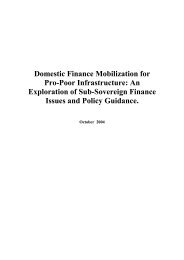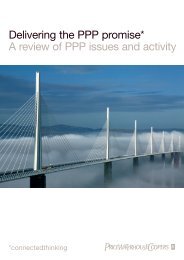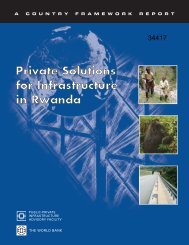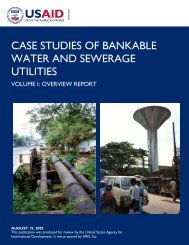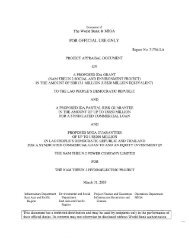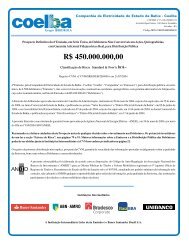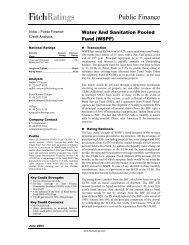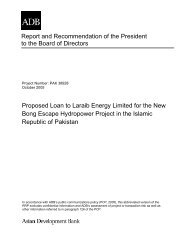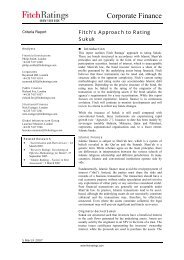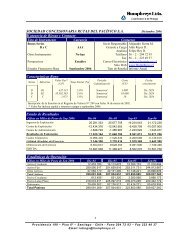EAP - The Pacific Infrastructure Challenge - World Bank (2006).pdf
EAP - The Pacific Infrastructure Challenge - World Bank (2006).pdf
EAP - The Pacific Infrastructure Challenge - World Bank (2006).pdf
You also want an ePaper? Increase the reach of your titles
YUMPU automatically turns print PDFs into web optimized ePapers that Google loves.
Box 9.4: How extensive are the opportunities for competition in the <strong>Pacific</strong> region<br />
<strong>The</strong>re appear to be opportunities for competition in mobile and international<br />
telephony and in internet service provision for example. Competition can help to<br />
lower costs and improve service in countries that are large enough to support two<br />
or more competing operators.<br />
Countries like Fiji, Samoa, Vanuatu, Solomon Islands, Tonga or Papua New<br />
Guinea can and do have competitive operators. However it has to be said that the<br />
rules for the players are sometimes skewed in favor of the incumbent – often<br />
government owned – operator. In the end, a PSP will not commit the investment in<br />
new services or maintain existing services of the playing field is not level.<br />
Competition in air services may help to encourage more choice and lower airfares,<br />
but the potential is sensitive to the environment within the country seeking the air<br />
services. For example, are landing fees and airport facilities adequate and fairly<br />
priced<br />
Where governments are concerned about continuity of service (particularly in<br />
smaller, more remote countries), competitively bid contracts under which airlines<br />
promise to service specified routes at specified frequencies in return for an agreed<br />
subsidy, may be more effective and efficient than financing a loss making national<br />
carrier.<br />
Competitive environments can be simulated in natural monopoly sectors, such as<br />
water and electricity distribution, by inviting private operators to bid for contracts<br />
to provide service for a fixed term.<br />
Box 9.5: How good are the oversight mechanisms in <strong>Pacific</strong> countries<br />
In essence, most countries in the region have a lot to do to install open,<br />
transparent and independent oversight mechanisms to ensure accountability.<br />
Sector reforms will help to achieve separation between the service provider and the<br />
governing authority, but this needs to be accompanied by open reporting to and<br />
oversight processes by independent regulatory bodies or to Parliament where the<br />
government is the service provider and implicit regulator.<br />
Independent Boards with the responsibility to report openly, can oversee<br />
management activities in public corporations or corporatized entities.<br />
Where the private sector faces competition and consumers of infrastructure<br />
services have real choice, it should not be necessary to have a specific sector<br />
regulator beyond an anti-competitive agency to monitor and prosecute predatory<br />
behavior. In small countries with human capacity and skills issues in being able to<br />
provide these overview functions, there is a strong case for establishing region<br />
wide overview capability. This is an issue which the <strong>Pacific</strong> Forum could explore<br />
in depth across the sensitive infrastructure sectors like water, electricity<br />
communications and international transport services.<br />
Publicized performance benchmarking will help to encourage some accountability,<br />
as will strong community involvement. Donors and multilateral lending agencies<br />
can also help to encourage increased accountability.<br />
73



